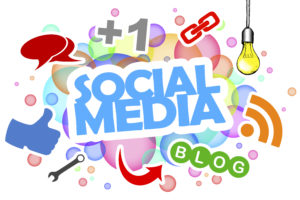Social Media ethics issues have created a troubling trend in our society. As first reported back in January 16, 2012, in a report by the Ethics Resource Center, there is an erosion in ethical behavior in both business and social settings that has been linked to a misuse of the social media.

Social Media Ethics Issues
To quote from the article:
“The proliferation of social media in the workplace is contributing to the ethical slide in many businesses. Active social networkers are far more likely to experience pressure to compromise standards and to experience retaliation for reporting misconduct than co-workers who are less involved with social networking, according to the study.”
Examples abound when it comes to social media ethics issues that have resulted in employee termination and lawsuits. Though I teach many business and association groups on the dangers of the social media, the consequences of the unethical use of the social media manifest themselves virtually every day.
I frequently explain to habitual social media users that “slam” people on the internet, be it Facebook, Twitter or any other social platform, that such abuse does not waive laws pertaining to slander. You are not protected from termination, lawsuits or penalties because you believe that you can hide behind your First Amendment rights. Furthermore, if the stakes are high enough (or the slander is egregious enough), cyber-security investigators have a remarkable array of tools at their disposal to find the perpetrators of slander. This applies whether someone is making unsubstantiated claims against their company’s products, customers, disparaging their supervisors or bullying a co-worker. Social media ethics issues are very real with significant consequences.
Relaxation of Standards
As the Ethics Resource Center found, there is a general slide in ethical behavior linked to social media. Common sense, and a common “ethical sense” often goes right out the window when the social media is involved which is why social media ethics issues are so significant.
I would like to relate some examples; one silly perhaps, and others serious, where social media users disparage – rather than think. In the first example, stupidity is in play and in the second, we examine a lack of ethics leading to a wide array of consequences.
The first example happened just a few days ago. It would appear that the “Honeymoon Period” between singer Beyoncé and Jay Z, might be hitting a rough patch. Recently the pop singer came out with a new song titled: “Lemonade.” In the song she makes scant reference to a woman who allegedly had an affair with Jay Z.
To cut through all of the hype and clutter, the fans of Beyoncé concluded through the winding back alleys of Hollywood gossip, social media sites and celebrity sightings, that the allegedly scandalous “other woman,” was a fashion designer by the name of Rachel Roy. I have absolutely no idea if this is true, but some of Beyoncé’s fan base is convinced of it.
However, in their anger and blind devotion, the legions of Beyoncé fans went after the entertainer and celebrity chef Rachel Ray! Quotes abound that curse, bully and “beat-up” Rachel Ray’s persona. Beyoncé fans are spewing their anger and ignorance against someone who, for one misplaced vowel, probably doesn’t know Jay Z from a Jalapeno.
Is it silly and ignorant? Well yes, but Rachel Ray had to take down her social media accounts until this thing blows over, and I guarantee someone out there (or many someone’s), will continue to disparage an innocent woman just because they are afraid to admit the pain and embarrassment they caused, rather than take ownership for their stupidity.
Taking it up a notch, a quick search of the internet shows us what happens when the social media is used to disparage or bully. Employees fired as a result of improper social media ethics issues include teachers, corporate executives and even television reporters! These are not blindly devoted fans, but presumably adults working in an adult world.
Some of the more notorious cases include a hot-shot PR executive fired over a racist tweet that also mocked those with AIDS, an MSNBC employee who slammed a Cheerios commercial because it showed a biracial family and a fast food worker who ripped her new job the day before it was to start.
In each case, they never realized their social media choices would lead to consequences including termination and public humiliation. Not so surprising, as offensive as their tweets were, the fools had supporters who defended their inappropriate social media usage!
Unethical social media behavior will undoubtedly continue to rise but with it, the consequences. Ethical training is essential to eliminate poor cyber-choices.
EXAMPLES ANYONE WILLING TO SHARE? of course…YOUR COMMENTS ARE WELCOME!


